Israel's Bennett Sends Video Message To Iranians On New Year

Israeli Prime Minister Naftali Bennett congratulated the Iranian New Year Noruz through a video message sent to Iran International wishing peace and prosperity.

Israeli Prime Minister Naftali Bennett congratulated the Iranian New Year Noruz through a video message sent to Iran International wishing peace and prosperity.
Bennett praised the centuries-old friendship between Jews and Iranians and expressed hope that in a near future the two people “can restore that relationship,” and added that “We seek peace, and we hope, we wish that the Iranian people will have prosperity.”
Bennett went on to say that Israel knows the vast majority of Iranians oppose the policies of “the ayatollah regime”, which spends money on “missiles, terror” rather than on their children and on education.
“I hope that in a short period of time, inshallah (God willing) we will have peace,” Bennett said and concluded his message with words in Persian marking Noruz (Nowruz).
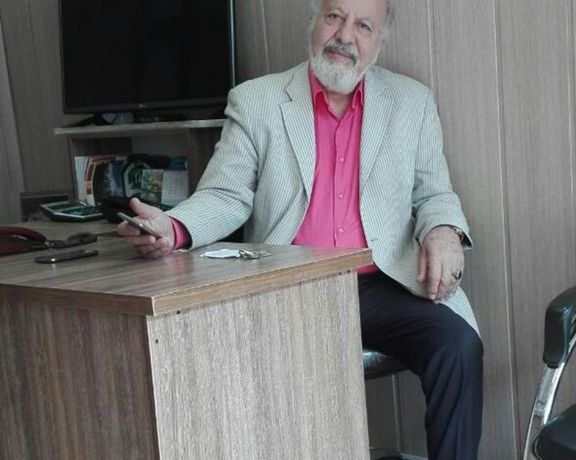
Shokrollah Jebeli an 82-year-old Iranian-Australian who was being held in Iran’s Evin prison died after being denied medical care for his multiple illnesses.
His son tweeted on Sunday that Jebeli has passed away. The family of the 82-year-old dual citizen and right groups had repeatedly expressed concerns about his health.
On March 14, Amnesty International issued a statement urging his immediate release because of his age and poor health, as well as violations of his fair trial rights rendering his detention arbitrary.
Amnesty said Iranian authorities were torturing him “by deliberately denying him adequate specialized medical care and withholding medication for his multiple serious health conditions”.
The statement said he was suffering from enlarged kidney stones, a history of strokes, sciatica in the legs, high blood pressure and an umbilical hernia that required surgery, but prison authorities refused to provide him with the adequate specialized medical care.
According to the statement, Jebeli was facing two separate cases in relation to financial dispute claims. He was sentenced to four years and six months in prison in one case, and the second was ongoing while he was denied legal representation of his choosing and was held in jail for 17 months without trial.
Iranian authorities deny medical care as a means of pressure on detainees. There have been numerous cases of withholding medical treatment for political prisoners. In January, jailed poet Baktash Abtin who suffered from Covid-19 died in custody after being denied timely hospitalization.

Iranians mark the year 1401 of their calendar and the Spring Equinox feast of Noruz with uncertainties and economic hardships continuing into the new century.
For over two and half millennia, long before the advent of Islamification of the country in the 7th century AD, the people of Iran Shahr (Land of Iranians) have celebrated the New Year, Noruz (Nowruz), which falls on the first day of spring. Noruz literally translates into 'New Day'.
Noruz festivities begin on the exact moment of the equinox and are so important to Iranians that more than four decades of clerical rule -- which generally does not approve of pre-Islamic feasts and festivals as pagan customs -- has not been able to substitute anything for it or reduce its importance.
Noruz has remained the most important festive occasion for Iranians and its importance is such that even Supreme Leader Ali Khamenei always delivers a televised speech immediately after the turn of the year, sometimes from his hometown of Mashhad.
The calendar year 1401 officially begins on March 21 but people began festivities Sunday afternoon, March 20 as according to astronomical calculations, the Spring Equinox falls at exactly 15:33:00 GMT on March 20 this year. The day is a public holiday, followed practically by a two week break in most activities.
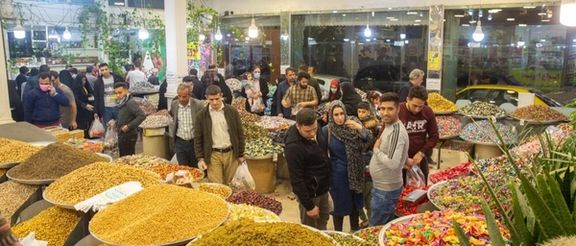
But the year, despite the many promises by President Ebrahim Raisi for improvement in people's welfare, is not ending well for many, including millions of pensioners who did not receive their monthly payments before the holiday began. Over one million have not been paid yet.
Failure to pay civil servants and pensioners is unprecedented in the history of the Islamic Republic. Payments had regularly been made even during the eight years of war with Iraq (1980-1988) during which Iran also faced with US sanctions.
Many others who were paid still had to struggle to make the usual purchases for the New Year as inflation in the past three years has been such that buying new clothes, ingredients for the traditional New Year dish (fish and herbed rice), fruits, nuts, and sweets to serve visitors has practically become impossible to afford for millions of families.
Clothing retailers say their sales are down to a fraction of previous years while according to officials of fruit and nuts wholesalers' unions, demand for the New Year has dropped by fifty percent in comparison with previous years. They maintain that the drop in sales is due to the unaffordable high prices.
Meanwhile, it was a disappointment to many that the talks in Vienna to restore the 2015 nuclear deal with world powers, the Joint Comprehensive Plan of Action (JCPOA), did not conclude before the end of the Iranian calendar year. The talks have not failed and may well result in an agreement in the next few days and the lifting of US sanctions which could help improve the economy.
The annual inflation rate is hovering above 40 percent. With people's purchasing power down so drastically, smaller businesses such as retailers are also finding it very difficult to survive. The market is too sluggish they say, and many are worried they will not be able to pay rents and employees in the coming year or go bankrupt if the sanctions are not lifted and the economic situation gets worse.
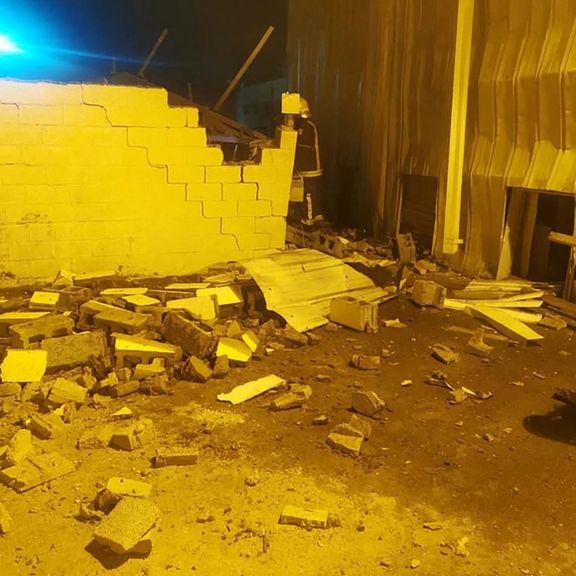
Yemen's Iran-backed Houthis have launched missile and drone strikes on energy and water desalination facilities in Saudi Arabia causing some material damage.
The Saudi-led coalition on Sunday said the attacks were aimed at a water desalination plant in Al-Shaqeeq, an Aramco distribution station in Jizan, a power station in Dhahran al Janub, a gas facility in Khamis Mushait and an Aramco liquefied natural gas plant in Yanbu.
"These hostile attacks and debris resulting from interceptions caused some material damage at the facilities and civilian cars and houses. There was no loss of life as of now," said the statement carried on state media.
The attack came amid talk that Washington is contemplating removing Iran’s Revolutionary Guard (IRGC) from its ‘foreign terrorist designation’, FTO, designation to ink a nuclear agreement with Tehran.
Israel, Saudi Arabia and its Arab allies in the Persian Gulf have serious misgivings about the Biden administration’s quest to revive the 2015 nuclear deal, JCPOA, by making such concessions to Iran.
The Houthis have received sophisticated weapons from IRGC, through its extraterritorial Qods Force. Houthi missiles and drones have Iranian origin, the United States and UN arms experts have maintained.
It is not clear specify which facilities incurred damages. Saudi State media posted images and videos of what appeared to be debris from the projectiles, damaged cars and structures and firefighters dousing flames.
Initial investigations showed the group fired Iranian-made cruise missiles at the desalination plant and state oil firm Aramco's Jizan distribution center, the coalition said.
It said Saudi air defenses intercepted and destroyed a ballistic missile and nine drones.
The Houthi military spokesman said the group would within hours announce a wide military operation on Saudi Arabia.
Houthis also launched drone and missile attacks at the United Arab Emirates in January, in what was seen as an escalation.
Riyadh leads a coalition that has been battling the Houthis for seven years in a conflict widely seen in the region as a proxy war between Saudi Arabia and Iran.
"These barbaric attacks are a dangerous escalation," coalition spokesman Brigadier General Turki al-Malki said, adding this constituted a Houthi rejection of planned Yemeni consultations in Riyadh later this month.
The Houthis have said they would only participate in discussions held in a neutral country and the priority should be lifting a coalition blockade on areas held by the group.
The movement ousted Yemen's Saudi-backed government from the capital, Sanaa, in late 2014, prompting the alliance to intervene months later. The Houthis say they are fighting a corrupt system and foreign aggression.
The war has killed tens of thousands of people and pushed millions to the verge of famine.
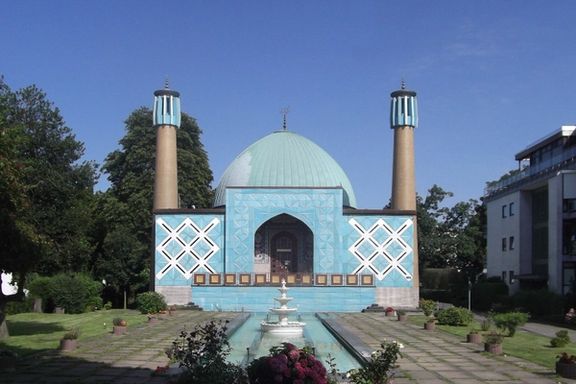
Germany has shut down several Islamic associations as well as their affiliate mosques and premises for being affiliated with Iran-backed Lebanese Hezbollah.
On Thursday, the city-state of Bremen closed the Al-Mustafa Community Center, while Police in Münster, in the North Rhine-Westphalia state, raided the Hezbollah-controlled Imam-Mahdi Mosque and its affiliated center.
Germany’s Federal Interior Ministry outlawed all Hezbollah activities in 2020.
Police spokesperson Antonia Linnenbrink said, “The aim of the mission is to convey the ban. The association’s assets are confiscated. We are also looking for evidence of unconstitutional activities.”
Bremen’s Interior Senator Ulrich Mäurer said that Al-Mustafa “actively propagates and promotes violence or comparably serious acts contrary to international law such as terrorism against the State of Israel. The ban of this association is therefore absolutely necessary.”
He added that “there were anti-Israel books and writings in the association's premises, including, for example, a flyer by the political and religious leader of Iran.”
“There is evidence that the Al-Mustafa Community tried to introduce children to its ideology and thus also to that of Hezbollah at an early age. The association's so-called scout group was also banned.”
Earlier in the year, an Islamic organization in Germany removed the Hamburg Islamic Center from its board of directors on allegations that the center is Iran’s “long terrorist arm” in Europe.
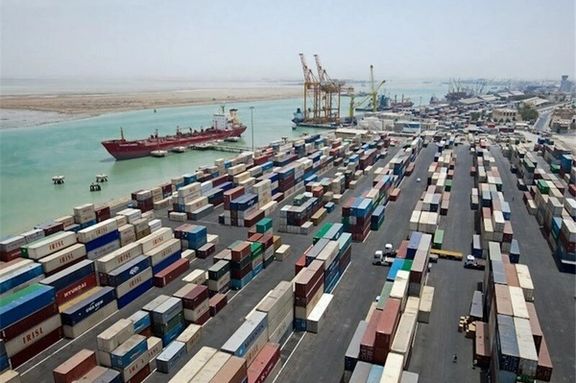
Iran has reportedly signed a deal with Russia to import 20 million tons of basic goods, including vegetable oil, wheat, barley and corn.
NourNews, which is affiliated with the secretary of Iran's Supreme National Security Council (SNSC), Ali Shamkhani, said on Saturday that Iran’s Agriculture Minister Javad Sadatinejad signed the agreement during a visit to Russia last week.
NourNews did not report the monetary value of the deal.
The report said the deal is to address concerns about shortages of basic goods and livestock feed in the next Iranian year, starting on March 21.
Iran eliminated a major subsidy for importing food and animal feed recently, raising fears of rising prices in the new year. According to a report by ISNA on Saturday, out of about $19 billion worth of basic goods imported in the past 12 months nearly $15 billion was subsidized with cheap dollars provided to importers.
Earlier in March, the parliament decided to scrap the multi-billion-dollar subsidy for essential food and medicines, despite warnings of more inflation and hardship.
The idea to eliminate the subsidy emerged after hardliner president Ebrahim Raisi (Raeesi) assumed office in August and could count on backing from conservatives and ultra-conservatives in control of Iran’s parliament.
The deputy head of Iran’s Customs Administration, Foroud Asgari, said about 30 million tons of basic goods have been cleared through customs and entered the country.